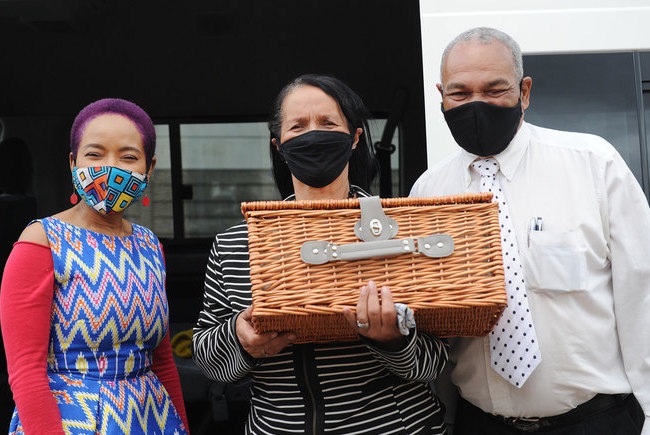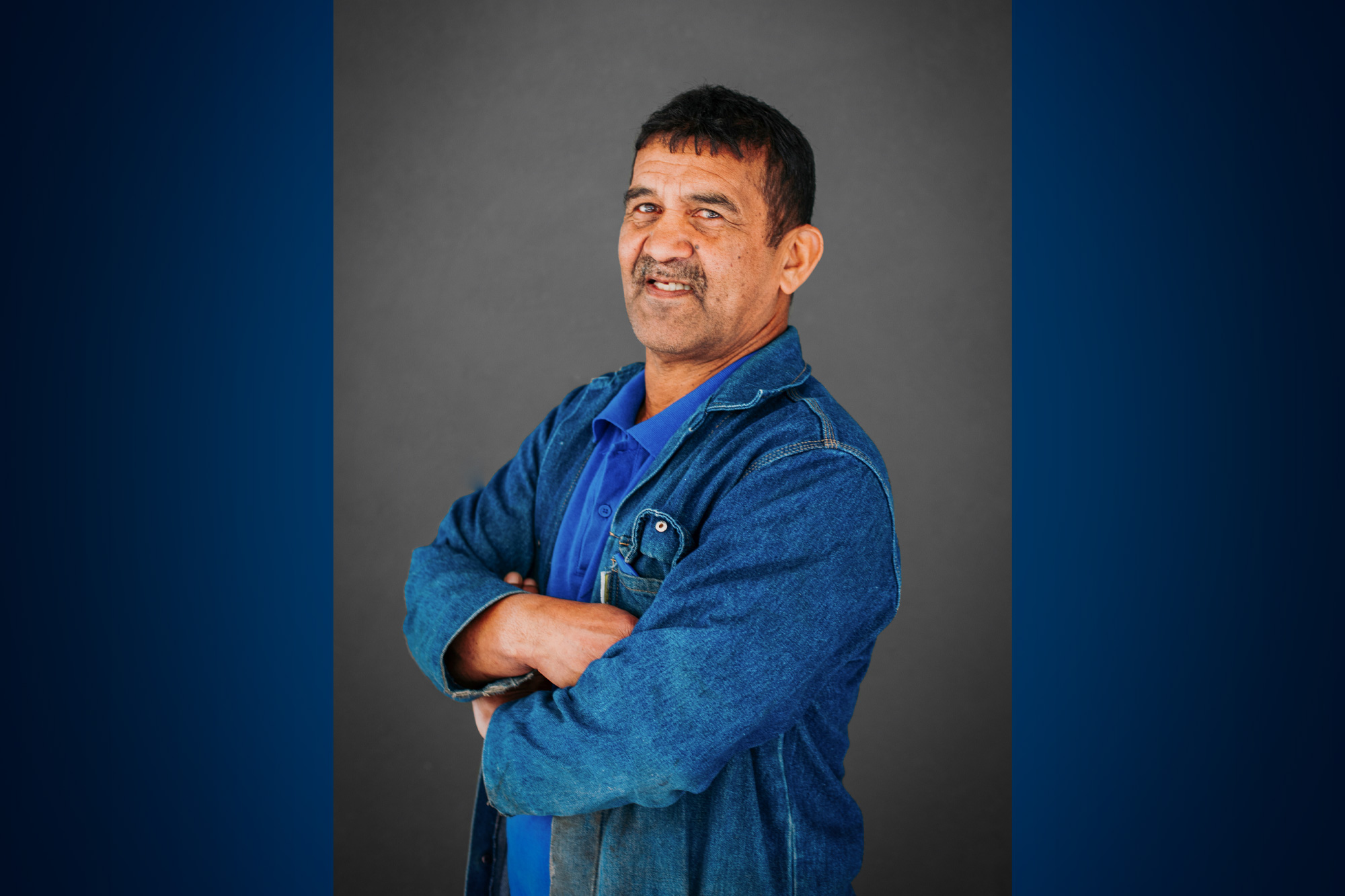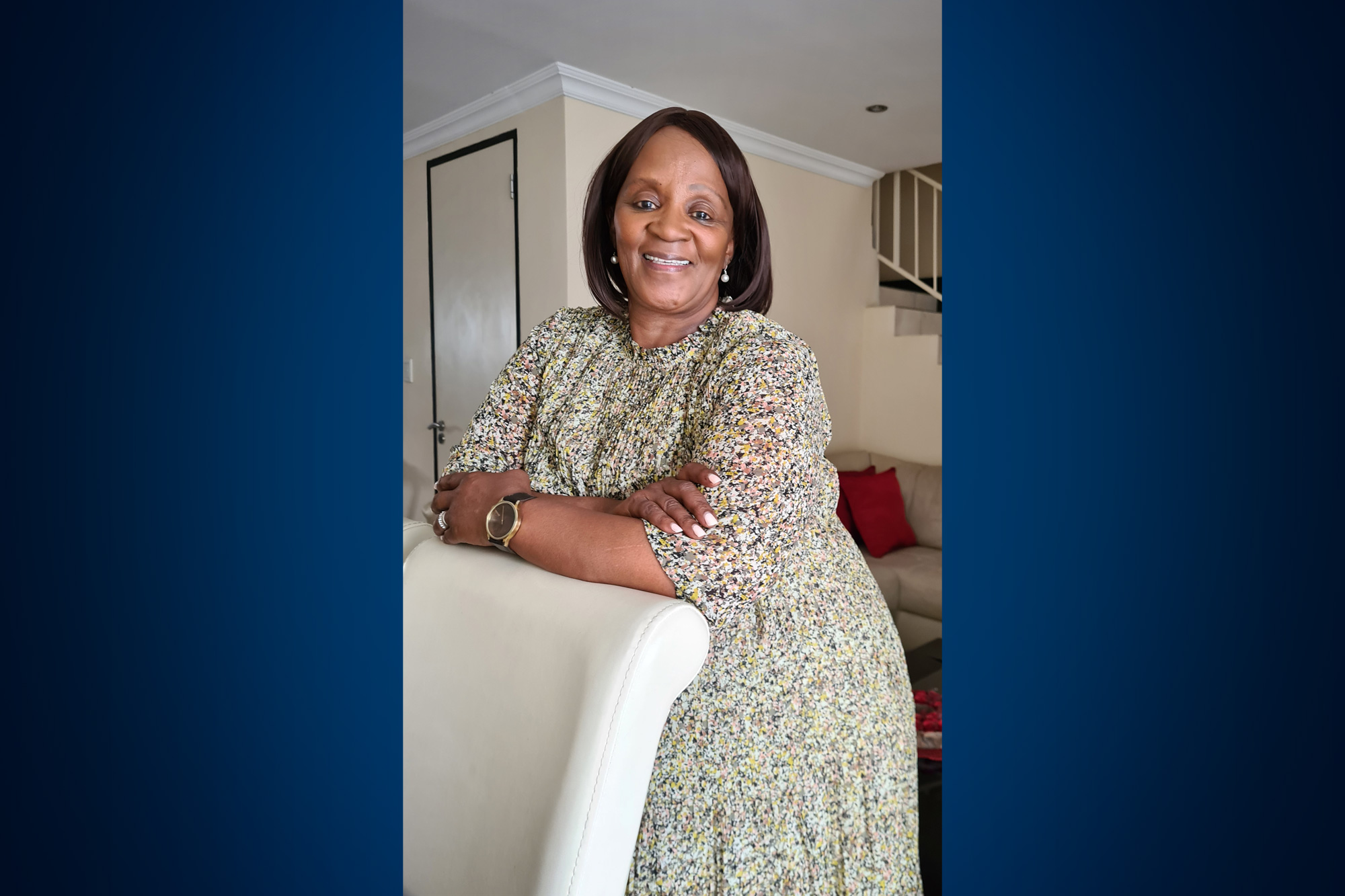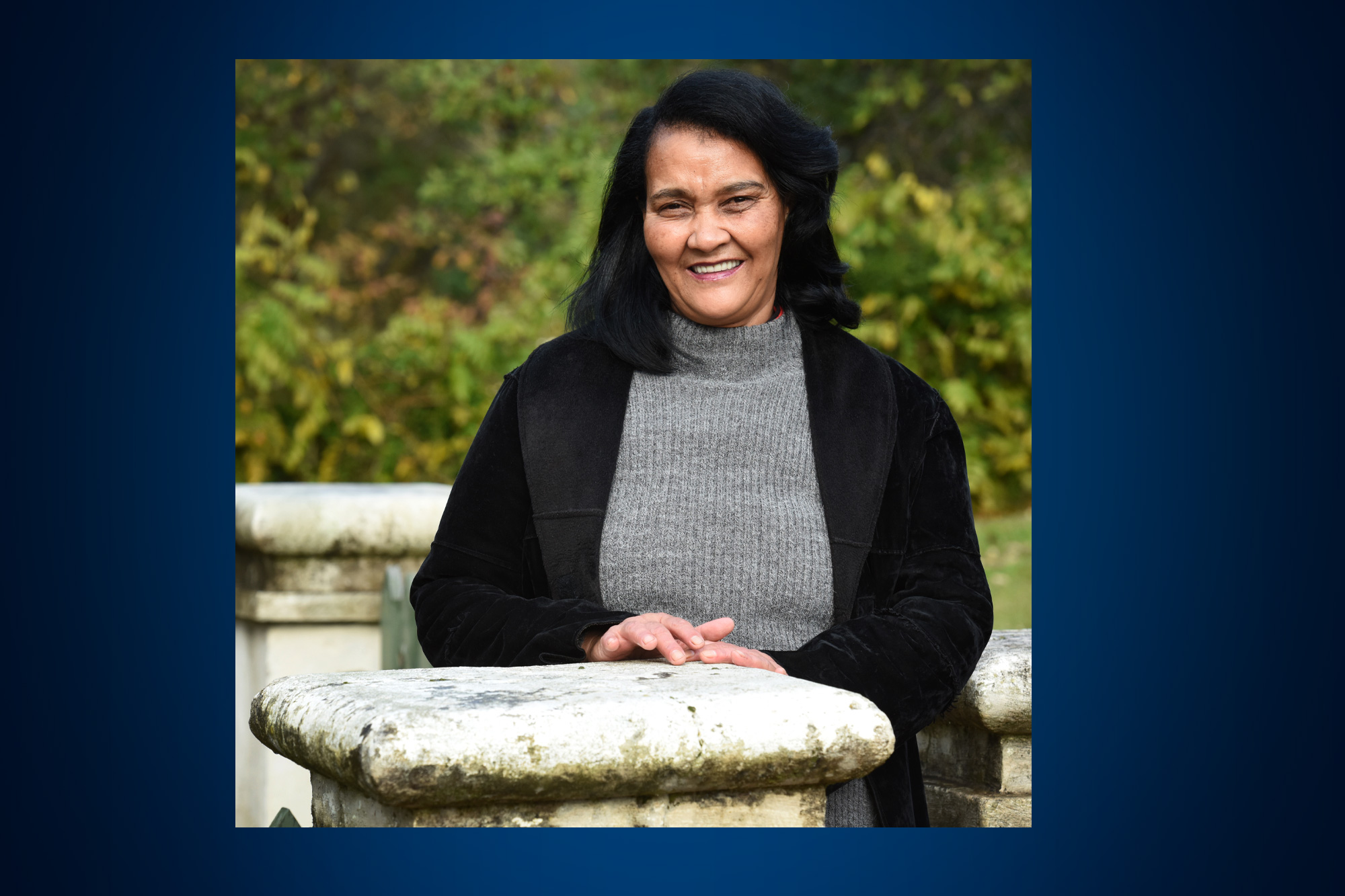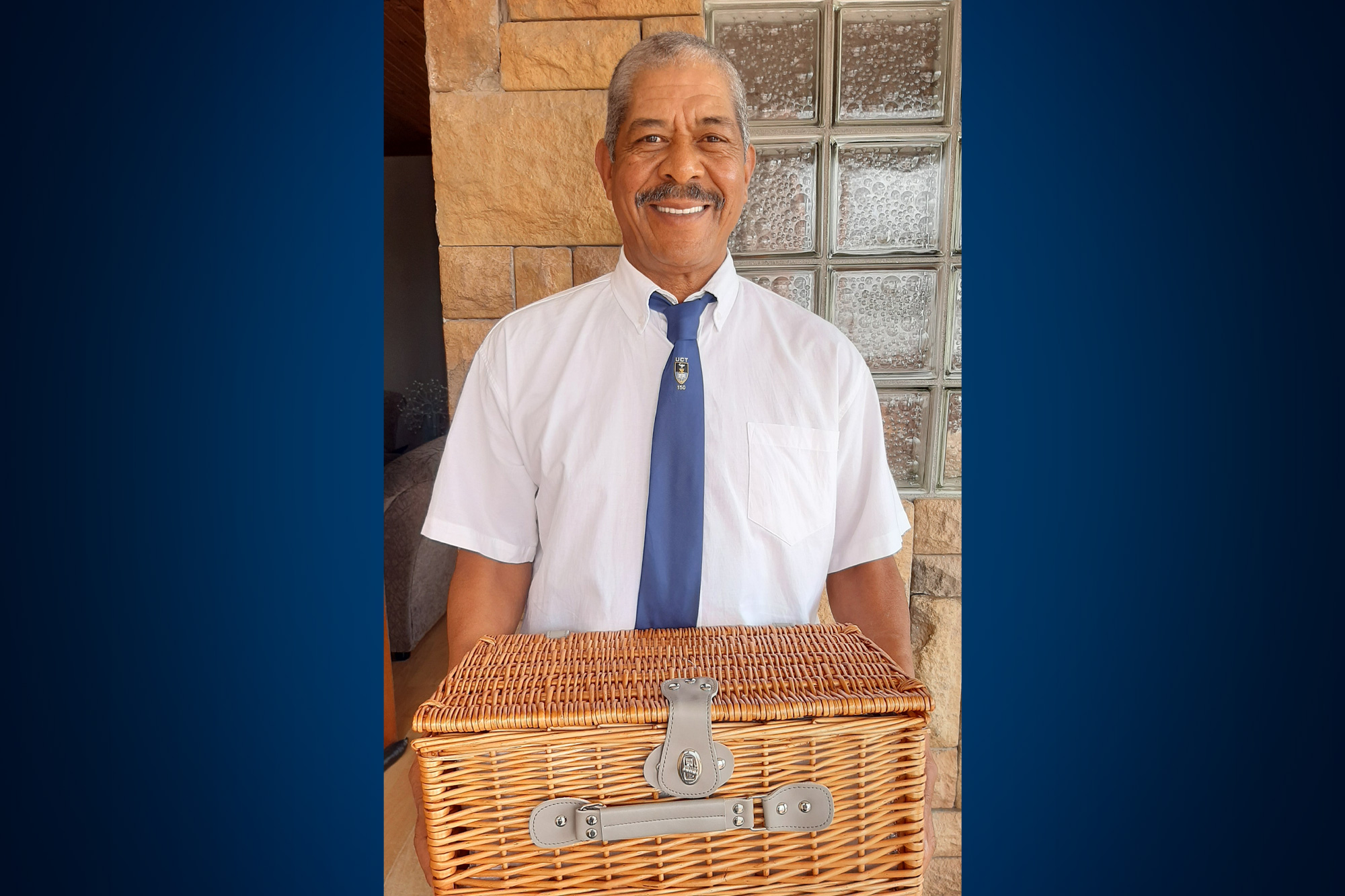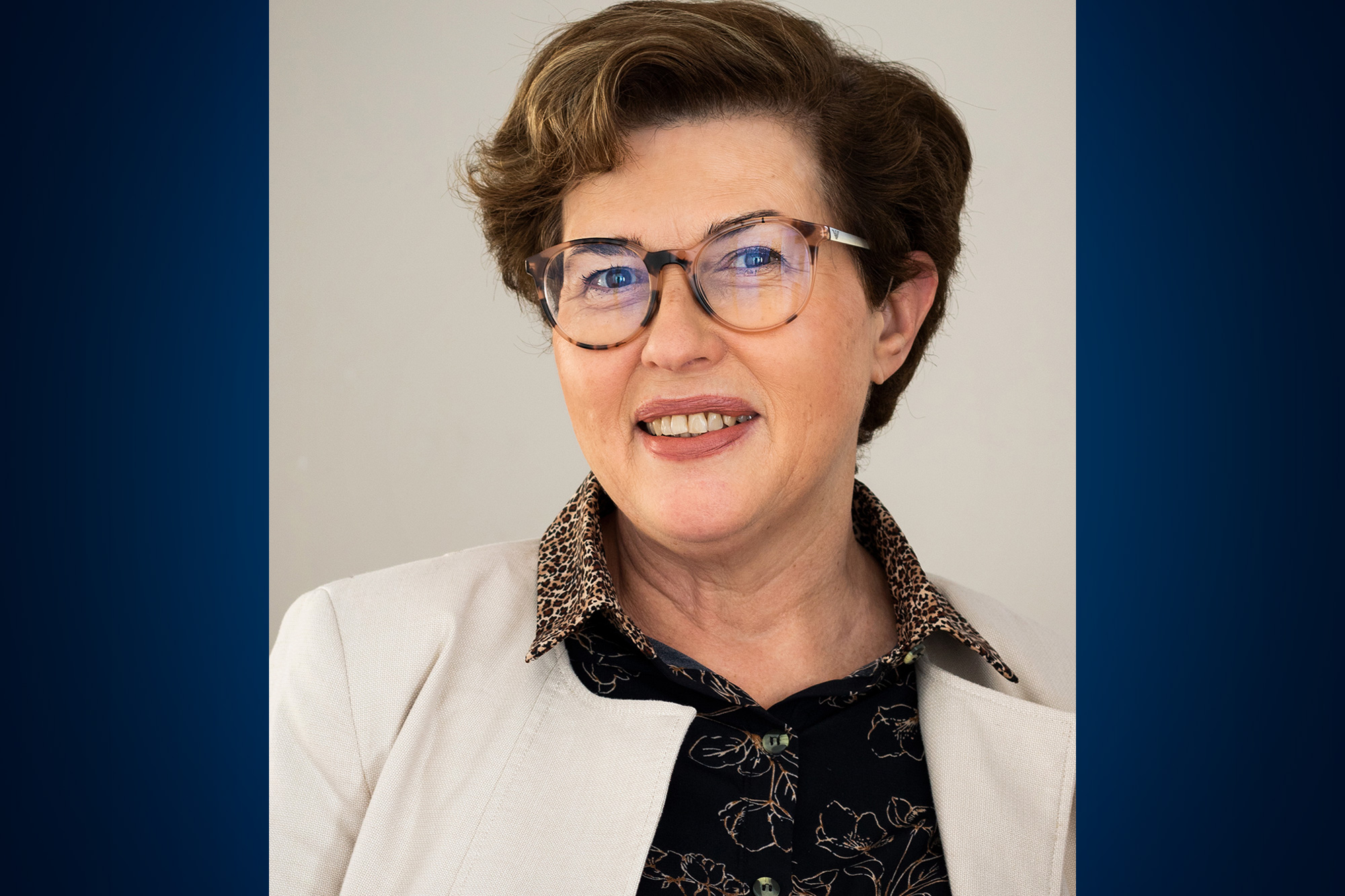Bidding farewell to Dr Dale Peters, UCT eResearch director
17 November 2020 | Story Natalie Simon. Photo Libby Young. Read time >10 min.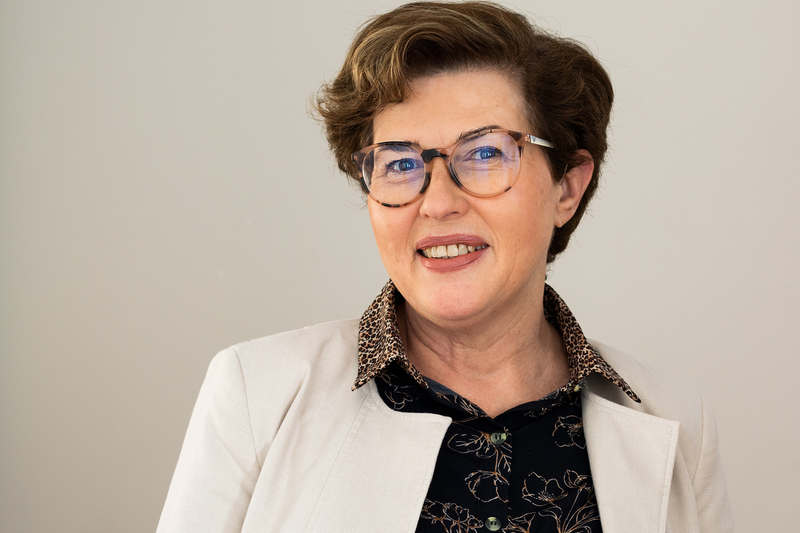
The UCT research community bids farewell to Dr Dale Peters, UCT eResearch director. Peters contributed significantly to the growth of support and infrastructure to build a research-intensive university that, despite limited resources, competes on the global stage.
She took over a fledgling entity with an ambitious mandate to increase data-intensive research capacity at University of Cape Town (UCT): she not only realised this mandate, but exceeded it, working tirelessly to ensure UCT adapts to fast-changing, technological infrastructure and policy environments to punch above its weight in research. And so, it is with a heavy heart that the University of Cape Town research community says goodbye to eResearch director Dr Dale Peters, who retires at the end of this year.
Over just four years, Peters built UCT eResearch into a tangible support service that worked – across a range of research-supporting professional, administrative support and services (PASS) departments – to provide researchers with research infrastructure and access to software and other information technologies, as well as the skills and expertise to navigate changing funder and government requirements, particularly around reproducible research. Evidence of this is the exponential increase in research engagements by the eResearch team, from 60 research support engagements in 2015 to 1 400 in 2020.
“It was under her leadership in the libraries that foundational work in digital archives, research data management, eResearch and digitisation was done.”
“Dale has used her knowledge of, among other things, research, information and communication technologies (ICT) and the management and curation of data and other digital assets, to skillfully shepherd UCT eResearch into the next phase of its existence, developing it into an asset for our university,” says Richard van Huysteen, executive director of Information and Communication Technology Services (ICTS).
Her knowledge of data curation and management was what brought her to UCT in the first place, where she started in 2013 as deputy director of technical services at UCT Libraries. In both roles, says Ujala Satgoor, executive director of UCT Libraries, Peters drove innovation.
“It was under her leadership in the libraries that foundational work in digital archives, research data management, eResearch and digitisation was done, including the adoption of the research data policy and setting high standards for metadata and digitisation workflows. Dale’s subsequent integrated approach across divisions has contributed to the flourishing of these services over the years, and towards embedding them within the research lifecycle.”
Peters has consistently worked to make sure UCT’s systems and infrastructure keep up with changing global trends around open science and reproducible research.
“This exhilarating experience of leading UCT eResearch has, by no means, been my solo flight,” said Peters, speaking at the annual research function and launch of the annual UCT eResearch report. “The success of eResearch at UCT must be ascribed to the political will of our executive directors in the UCT Libraries, ICTS and Research Office. And of course, to the strategic leadership of successive deputy vice-chancellors.”
Building partnerships to support research
UCT eResearch, as a distributed organisation, brings together the various research support PASS departments of the Research Office (including Research Contracts and Innovation), Information and Technology Services (ICTS) and UCT Libraries. In the beginning, these alliances were uneasy as departments operated in silos, sometimes even duplicating support and services. The strong working relationships these departments enjoy today, which are evidenced through projects like the Research Data Integration Project, ensure a more holistic support service for research.
Says Christina Pather, who, as Deputy Director of the Research Office and then acting Executive Director for most of 2020, saw the development of eResearch at close quarters, this ability to work across PASS departments has been critical to the success Peters has achieved. “On behalf of the Research Office, we thank Dale for her influence in enabling and supporting the research management infrastructure at UCT, and for her contributions as a member of our senior management team.”
As researchers find themselves grappling with new regulations and requirements brought about by legislation like Protection of Personal Information Act (POPIA) and the European Union’s General Data Protection Regulation (GDPR), the strong relationships between the PASS departments have been invaluable, as the response to these regulations usually involves several different departments.
This streamlining of the services has made life much easier for researchers. According to Professor Catherine Ward of UCT’s Department of Psychology, the support of UCT eResearch in navigating complex data issues was a huge relief.
“I am a psychologist with no insight into many of the complexities and technicalities we have to grapple with around data management and compliance. Having this kind of support has given us a real competitive edge.”
Building a culture of shared infrastructure at UCT and in South Africa
Through UCT eResearch, Peters really championed the idea of shared infrastructure, so that researchers do not need to invest both time and money into buying and maintaining their own scientific computing and other research infrastructure. The best example of this is the high-performance computing facility based at ICTS, in which a number of researchers have invested a share of their research grants to contribute to building an excellent and sustainable facility, with minimum downtime as it is used by a range of researchers, and is managed by a dedicated and professional team.
“While facilitating collaboration remains a primary goal of eResearch, this has exceeded our initial challenge of exchanging large volumes of data over the internet and of shared computational resources.”
Peters and UCT eResearch also played a critical part in expanding the shared infrastructure model outside of UCT to create regional collaborations. In the last five years, UCT has taken an important lead in the building of cloud computing infrastructure for research. This began with the launch of the African Research Cloud in 2016, which was then expanded through the Inter-university Institute for Data-Intensive Astronomy (IDIA) and culminated in a regional consortium (of the Western and Northern Cape) to establish a data-intensive cloud computing facility dedicated to research, called ilifu, funded, in part, by the Department of Science and Technology.
Engagement nationally
Peters’ contributions have been felt well beyond UCT. Through her involvement with organisations like Association of South African University Directors of Information Technology (ASAUDIT), she has advised several other universities and research institutions on setting up their own eResearch support facilities and served for a while as the chairperson of the IT steering committee for the Human Sciences Research Council (HSRC). She served on the board of the Tertiary Education and Research Network of South Africa (TENET) for two terms and also worked with the European Union and Department of Science and Technology on the European Open Science Framework.
Looking forward
Peters notes the important role eResearch plays in supporting collaborative research and it is here that UCT eResearch will focus its future efforts.
“While facilitating collaboration remains a primary goal of eResearch, this has exceeded our initial challenge of exchanging large volumes of data over the internet and of shared computational resources,” she says. “While these imperatives remain, we now witness the need for deep conversations, to develop common semantics to organise, analyse and share data across disciplines.”
“Dale has been a clear-eyed champion of open science and open data at UCT and, indeed, the country as a whole.”
She predicts a very exciting future for eResearch in the evolution from an ancillary support agency to an integral service to project partners.
“This speaks to the leading role that UCT has taken in guiding collaborative projects that are negotiating this tricky balance between regulatory compliance and open science,” she says.
As she looks to her new future, Peters says she looks forward to being able to visit her children abroad, both of whom married international students visiting UCT through international programmes, when international travel is permitted again. She also said some post-retirement consulting work may be on the cards. As she does so, she can look back with enormous pride and satisfaction at the legacy she has left behind
“Dale has been a clear-eyed champion of open science and open data at UCT and, indeed, the country as a whole,” says Professor Martin Wittenberg, director of DataFirst. “She has been a great supporter of our work in DataFirst, helping us win the inaugural NSTF-South 32 Data for Research award and putting our data platform onto a more sustainable footing. We’ll miss her.”
Says Professor Sue Harrison, deputy vice-chancellor for research and internationalisation: “The efforts of Peters to keep the research endeavour at UCT, and even nationally, ready and responsive in the face of a fast-changing landscape have been remarkable, and whether they know it or not, all researchers at UCT have benefited from these efforts.
“The UCT research community would like to extend their deep gratitude and appreciation to Dr Dale Peters for her Herculean efforts over the years, which have resulted in UCT’s researchers being able to enjoy the kind of infrastructure and support required to keep globally competitive.”
 This work is licensed under a Creative Commons Attribution-NoDerivatives 4.0 International License.
This work is licensed under a Creative Commons Attribution-NoDerivatives 4.0 International License.
Please view the republishing articles page for more information.
2020 Retirees Recognition
This year we have the privilege of honouring 87 retirees from across the university, including academic and professional, administrative support and service (PASS) staff. It’s an opportunity for us to say a deserved thank you to the staff members who have served UCT for as long as they have, and for their ongoing commitment to building the university we are proud to be a part of today.
“This is how universities become great, because people commit to making them great. UCT is strong because you have helped to keep us strong, even during challenging times. Thank you.” – VC Prof Phakeng
This year’s retirees
Please note: only photos supplied by the retirees have been included in this gallery. See the full list of retirees’ names.












